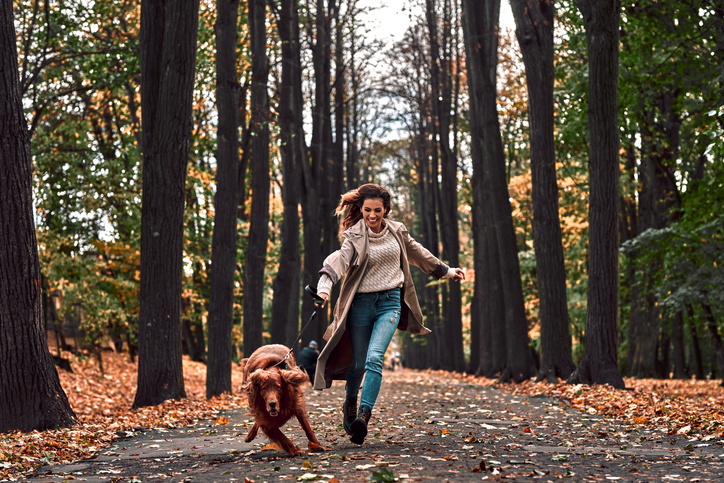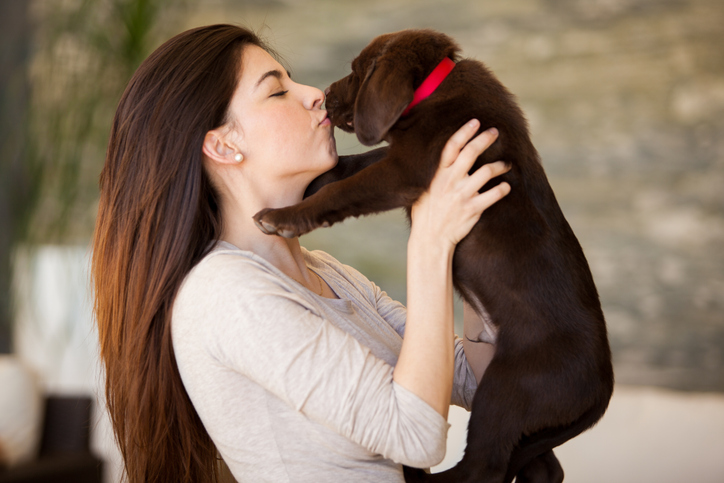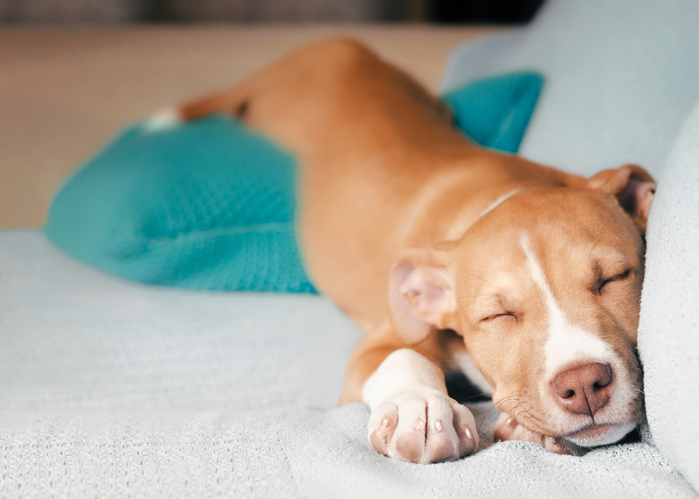
While dogs are said to be man and woman’s best friend, unless you’re a cat person, these canines have some interesting behaviors that may make you question, “Why does my dog do that?”
In a series that The Ranch Pet Resort and Spa began last month to answer some of your most asked questions, this month’s blog will focus on why dogs react they way they do on a leash, why they lick you, why they eat grass, and why they sleep in the positions they do.
Keep in mind that our canine friends still carry the history of their ancestors in their genes and that while we may have domesticated them, they come from a long line of ancestors whose behaviors stay with them.
Through the good and the bad, dogs act in a way that makes sense to them, even if we find their behaviors funny, frustrating, or confusing!
Why Does My Dog React on a Leash?
Leash reactivity is a common behavior where dogs will either growl, snarl, bark, pull on the leash, lunge, spin around, or otherwise “act out” when they encounter a situation, dog, or person that makes them feel scared, frustrated, or territorial. It’s a more severe reaction than a dog without leash reactivity would have and occurs in dogs who have been under socialized or not exposed to people, places, things, or other animals in a positive way (source).
The perceived “threat” creates a fight or flight response in the dog. Since the leash prevents the dog from running away, they respond by using their body language as cues to warn the perceived threat they are uncomfortable.
Leash reactivity can be tamed over time and with patience and understanding. For more information on leash reactivity and how to help your dog overcome leash reactivity, please click here.
Why Does My Dog Lick Me?

The slobbery licks your dog covers you with is a learned behavior. A puppy licks its mom to get milk and licks its siblings to groom and interact with them. Dogs lick to explore their environment, show affection, play with you, get your attention, or ask a dominant dog in its pack for permission to eat communal food.
The more you are covered in slobbery, wet kisses, the more positive affirmation you are giving your dog. While some may associate licking with a “gross display of germs,” a dog associates licking with positive behavior that he is naturally ingrained to perform (source).
Why Does My Dog Curl Up in a Ball When it Sleeps?

If your dog moves in circles or digs its bed before it curls up to sleep, you can thank its ancestors. In the wild, dogs dig nests to curl up in. Curling up keeps the dogs warm and prevents their vital organs from being exposed to predators.
So the next time you see your dog digging in its bed or circling before it lies down, you have a better understanding of this behavior. If your dog stretches out or sleeps upside down, it’s either hot or feels very safe and secure (source).
For more tail wagging information about your dog, Refer to our blog.

